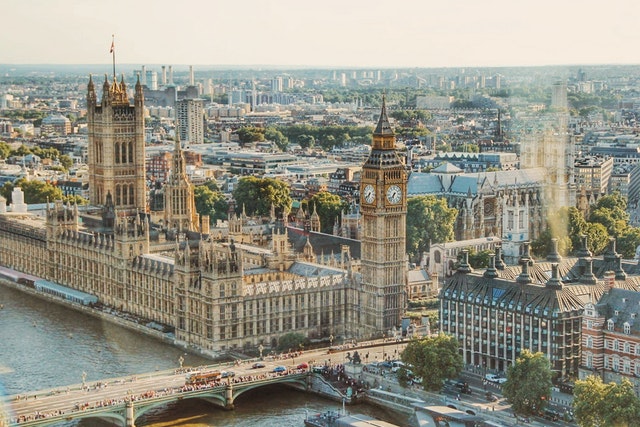By Daniel Gaffney
The atmosphere in the House of Commons is toxic and fractious. MP’s are firing unconsidered barrages of personal attacks at one another, and backbench Tory members are at loggerheads with their own Prime Minister. The Irish question is central to the political crisis.
That was the political environment over 170 years ago, when then Prime Minister Sir Robert Peel pushed the repeal of the Corn Laws through the house. The repeal was passed against the backdrop of the Irish Potato blight of the 1840’s. As well as being too little too late in lessening the effects of the famine, the argument over the repeal bill forced irreconcilable rifts within Peel’s Tory party. On that same night Peel’s Irish Coercion Bill lost 292 to 219, forcing Peel to resign; it took 28 years for the party to form another majority government.
The growing schism between the old guard and the modernising wing of the Conservative Party led to a realignment of British politics, laying the bedrock for the multi-party system that still exists today- just about.
Most of Peel’s cabinet supported repeal, but a vast amount of backbenchers were staunchly against it. Eventually, a group of Peel’s supporters, known as the Peelites, left the Conservative Party to join the Whigs. Peel died in 1850 after a riding accident, but his followers- with key figures like William Gladstone among them- fused with the Whigs as the Liberal Party.
1846 settled the issue of protectionism versus free trade for good, but it also provides a valuable lesson on party politics that has so far been ignored.
Mark Twain famously stated that ‘History doesn’t repeat itself, but it often rhymes.’ With this in mind, there are two imperative lessons that can be learned from the repeal of the corn laws. The first: Peel relied heavily on cooperation with the opposition to overturn the laws with a divided Conservative Party. The second, an aggressive style of debate that relied heavily on personal attacks led to an upheaval of the British political system.
Britain today is just as divided as it was in the mid-nineteenth century, if not more so. As if the brutal murder of Jo Cox in 2016 was not warning enough, three years later we are seeing Members of Parliament confronting advisors in the back corridors of Westminster, as well as the Prime Minister himself lazily throwing around violent terms like ‘surrender’.
If the debate following Boris Johnson’s failed attempt to prorogue Parliament isn’t evidence of history repeating itself, it is at least an archetype foreshadowing things to come.
Connotations can be drawn between Ken Clarke, the Father of the House, and William Gladstone- whom was referred to by his peers as ‘The Grand Old Man’. Both were long serving members of the Conservative Party, and both left as a result of divisions within the party, although Clarke was forcibly expelled in September; alongside twenty other Tory rebels.
The face of British politics is changing as the 31st of October withdrawal date approaches and- one has to wonder- what will it look like when Brexit is eventually resolved? With Labour arguably also in a state of disrepair, coupled with a distrust of politicians that has never been higher, it would take a brave man or woman to bet on a majority government after the next general election.
In Scotland, support for the SNP is higher than ever, while the Liberal Democrats and Change UK are garnering the support of pro-European voters, the Brexit Party on the other hand are a favourable option for eurosceptics.
One thing that has been evident throughout our modern political history is that a political crisis always creates a golden ground for a strong opposition. Twain is correct, history does not always repeat itself; a strong opposition is nowhere to be seen. However history does indeed rhyme. Amongst the chaos of the Conservative and Labour parties, green shoots of promise are sprouting from the ashes. Even the best political commentators cannot tell you who will be sat in the House of Commons in the near future, but I can guarantee that our post-Brexit democracy will look very different to how it does now.


Leave a Reply